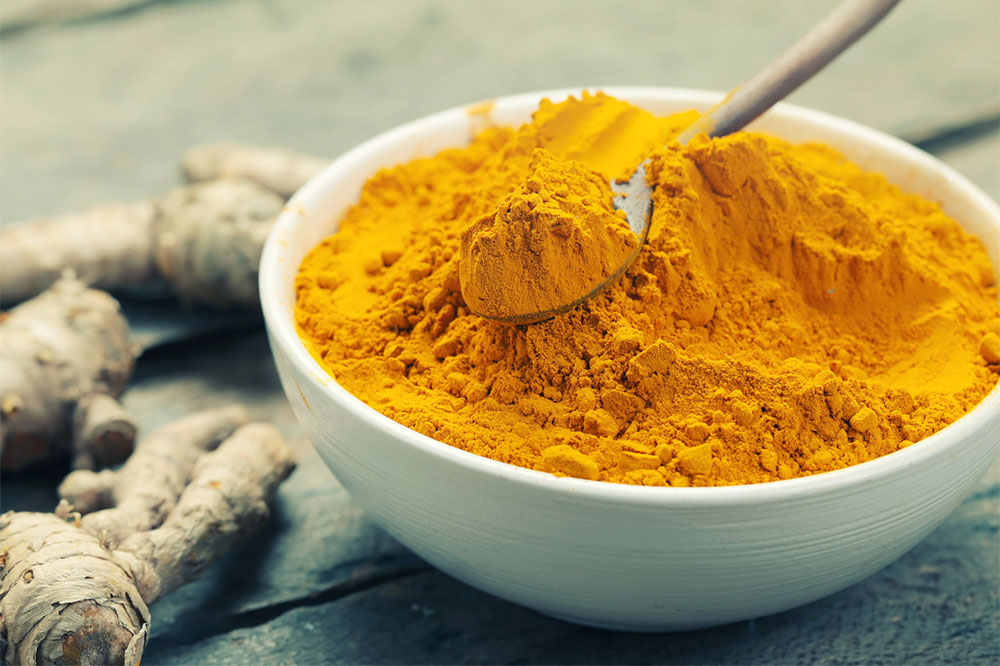
12 significant benefits of turmeric
Turmeric is an ancient spice and is considered a powerful supplement and effective herb even to this day. The spice, as we all know, holds some great healing properties and can be consumed or used topically. It’s no surprise that it is a go-to for many during winters to manage wheezing, cold, and cough. Here are twelve benefits of turmeric that will make you want to keep it handy in your kitchen at all times.
First, let’s understand the properties of this yellow spice that make it a superfood. Asians have widely used turmeric since ancient times. It contains anti-inflammatory properties from its natural compound, curcumin. Inflammation is the root cause of many diseases, and hence turmeric is used in many meals to keep certain illnesses at bay and help manage the symptoms of ongoing health conditions.
Benefits of turmeric
Rich in antioxidants
Turmeric is best known for its potent antioxidant properties. Antioxidants help protect from free radicals and combat the damage caused due to oxidative stress. The free radicals and oxidative stress trigger several human diseases, as they can adversely alter lipids, DNA, and proteins.
It contains medicinal properties
Along with being a potent antioxidant, turmeric is a great anti-inflammatory source that helps the body heal faster. When added to food, hot tea, or warm beverages like ginger tea, turmeric can help combat infections, cold, and flu. Additionally, in Asian countries, turmeric is often used on bruises and cuts to stop bleeding and help the wound heal faster. With its growing popularity, people from all over the world have started to use this.
Helps lower cholesterol
Turmeric helps suppress the buildup of plaque, which narrows the arteries and limits the blood flow, and causes cardiac issues. High cholesterol levels can manifest tons of ailments, like high blood pressure and blood sugar levels. That said, it’s a good idea to include turmeric in food preparations or add it to ginger tea from time to time.
Prevents cardiac issues
Since turmeric keeps blood glucose in control and also helps reduce cholesterol levels, regular ingestion of turmeric can prevent many heart conditions that are caused by blocked arteries.
Can help manage diabetes
This yellow herb helps regulate blood pressure, cholesterol, and blood sugar levels, which, in turn, lowers your chances of manifesting any disease. Besides, people diagnosed with diabetes can manage blood sugar levels, as turmeric also enhances glucose control. Regular intake of turmeric can also lower insulin resistance, preventing the development of type 2 diabetes.
Used to treat skin conditions
Turmeric can also be used as a potent cosmetic ingredient. The anti-inflammatory quotient of turmeric can help calm inflamed skin, pores, rashes, and bruises. The use of turmeric on wounds can help heal the injury and ensure it doesn’t leave a prominent scar. However, please remember that turmeric is used as an ingredient in cosmetic treatments and face masks but not as-is on the face.
Helps manage Alzheimer’s disease
The anti-inflammatory properties of turmeric help combat foreign invaders, keeping myriads of illnesses at bay. Among the variety of ailments, turmeric helps fight against Alzheimer’s. This disease takes over the older generation and, more often than not, turns into dementia. Regular intake of turmeric can help prevent a long-term illness like Alzheimer’s.
Manages depression
Studies have shown a link between turmeric and depression. The intake helps lower levels of brain-derived neurotrophic factors. It also prevents the loss of neurons present responsible for learning and memory called the hippocampus. Curcumin, the anti-inflammatory compound, helps enhance the brain’s neurotransmitters.
Relieve arthritis
Arthritis is an illness provoked by the inflammatory effects of the body. The auto-immune disease attacks its own system and causes pain and discomfort in joints. Turmeric, being a potent source of anti-inflammatory properties, can help combat free radicals.
Treats Gastrointestinal Conditions
A weaker GI tract may not respond well to any treatment options over a while. But studies claim that the anti-inflammatory factors of turmeric can control inflammatory bowel disease, ulcerative colitis, and even Crohn’s disease.
Aids in weight loss
Curcumin cuts down on oxidative stress that is often linked with many diseases and weight issues. Adding turmeric to tea and food can aid in constructive weight loss.
Works as an anti-aging supplement
Since turmeric helps keep the above-listed diseases at bay and helps enhance skin condition, research also hints that turmeric may help delay aging and the complications that come with it.




